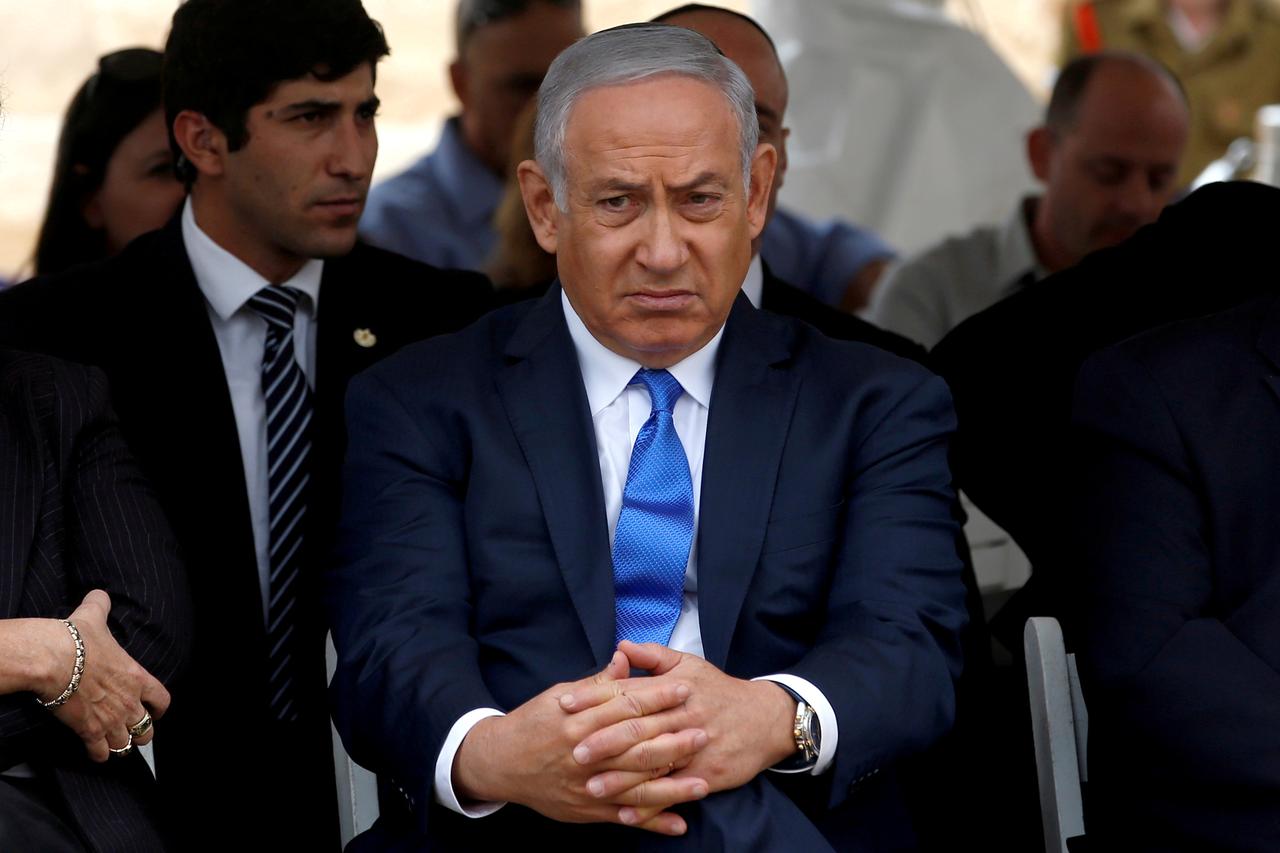Deal of the century or a catastrophe for the Palestinians?

One could not even conspire to get as lucky as Israeli Prime Minister Benjamin Netanyahu has been to get re-elected. His electoral success has no doubt been boosted by three important factors: The US decision to move its Embassy to Jerusalem and therefore recognize the city as the capital of Israel; President Donald Trump’s announcement that the occupied Golan Heights should fall under permanent Israeli sovereignty; and Netanyahu’s announcement on the eve of the election that, if he won, his government would annex the Israeli settlements built on Palestinian land in the occupied West Bank.
The only spoiler to his elections success, in the eyes of his supporters, was maybe the crash landing of an Israeli spacecraft, which was intended to land on the moon, just moments before touchdown. Israel thus failed to make history with the first privately funded lunar landing.
“Bibi,” as the Israeli PM likes to be called, is again in full control of the destiny of the Israelis with a right-leaning agenda that wishes to bury the two-state solution for good. He is aided by the rise of populist politicians from Washington to the Middle East and passing through many European capitals too.
Since Trump became president two years ago, the White House has been drumming up support for its so-called “deal of the century” to end the Palestinian-Israeli conflict. This deal, due to be unveiled in June, is likely to do away with the two-state concept, which for a long time has been seen as the guiding premise to solving the Palestinian-Israeli conflict.
Over the past two years, the Trump administration has circumvented international law and, at the strike of a pen, handed Jerusalem and the Golan Heights to Tel Aviv. Trump has also slashed nearly $1 billion from annual US aid to the Palestinians and his administration has even questioned the Palestinian refugees’ right of return.
Palestinians both in Gaza and the West Bank are unnerved and feel that the deal is likely to undermine their basic rights.
Mohamed Chebaro
In short, the “deal of the century” could undo the tenets of the Oslo peace agreement signed in September 1993, which had paved the way, we were told, for a lasting peace between the Palestinians and the Israelis based on a two-state solution.
The mastermind of this new deal seems to be Trump’s son-in-law Jared Kushner. The senior adviser to the president has given no indications as to what is in the deal or if negotiations would be needed to discuss, approve or agree its key elements. In a recent meeting in Washington, Kushner reminded members of the international community that all parties must compromise if a solution is to be reached.
Against this backdrop, the Palestinians both in Gaza and the West Bank are unnerved and feel that the deal is likely to undermine their basic rights, international law, and the guarantees given to them over the decades regarding their right to a nation state and self-determination.
Palestinians are starting to sense a storm gathering under the pretext of evading a human catastrophe in one of the most densely populated strips of land on earth: Gaza. Palestinians fear that a statelet could be established there, with a possible extension into part of the Egyptian Sinai desert, in a bid to alleviate the inhumane conditions, as years of Israeli siege, bombardment and lack of investment have rendered it incapable of catering for its citizens.
A UN report has recently painted a grim picture of life in Gaza, where it said that human life might not be sustainable as soon as 2020. In the West Bank, the Palestinian Authority (PA) was rightly alarmed by Netanyahu’s call for the annexation of Israeli settlements. But they were more alarmed by the muffled international and Arab response to Bibi’s announcement, which could only be seen as an illegal claim that contravenes international laws and 70 years of UN resolutions.
Some in the West Bank even believe that such statements are not innocent or for electioneering purposes, but fall in line with Israeli and US efforts to further suffocate the divided Palestinians in the hope that they will concede and agree to the so-called deal of the century.
Some think the deal will pave the way to further disperse the Palestinians of the West Bank under the guise of economic necessities both for Palestinians and Israelis, even if it means declaring the PA dead and resuscitating the old links with Jordan. Some even talk of ending the long-held promise of a right of return and, through economic privileges, neighboring countries granting settled status to the Palestinians refugees they host.
The Palestinian divisions, compounded by Arab polarization and divisions between pro and anti-Iran groups, have not helped the cause or the long-held dream of a nation state based on the 1967 borders.
The Palestinian-Israeli conflict requires a just and fair solution, as it remains a key issue for peace and stability in a turbulent region. One would hope that no half-baked deals will be rushed through in the leaderless world we have been living in lately.
This international vacuum, where populist, isolationist policies are packaged as nationalist priorities, has silenced the voices of reason. Multilateralism is seemingly now considered to be a bottleneck handicapping efforts to reduce complex world problems that impact people, history and demography into a simple spreadsheet.
- Mohamed Chebaro is a British-Lebanese journalist with more than 25 years’ experience covering war, terrorism, defense, current affairs and diplomacy. He is also a media consultant and trainer.










































